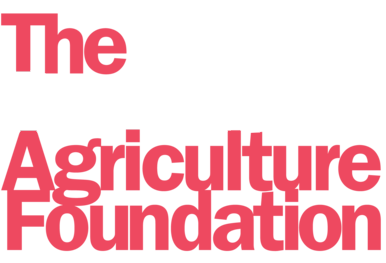Breaking The Stigma Of Mental Health In Farming
By Lesley Kelly, Farmer and Co-Founder of the Do More Agriculture Foundation
About 40 percent of Canadian farmers say they would be uneasy seeking help for mental illness because of what others may think, according to research from the University of Guelph back in 2018. While there has been much effort and progress made over the last five years within agriculture, stigma against people with mental illness within agriculture is deeply rooted and still very much an issue.
Farming can be a very rewarding career but it can also be difficult and stressful. The responsibility that comes with caring for the land, animals, and families with many factors outside of a farmer’s control can be overwhelming. For decades, farmers have been typically boxed into a certain type of character: Strong, resilient and hard working, which are valuable traits and skills given the many roles and responsibilities farmers take on. However, somewhere along the way this characterization equated mental health challenges with a sign of weakness and showing signs of weakness threatens the integrity of a farmer.
Because of the stigma around mental health within agriculture, farmers and those working in the industry avoid or delay seeking treatment due to concerns about being treated differently within their rural communities or fears of losing their livelihood. Stigma against people with mental illness can be subtle or it can be obvious—but no matter the magnitude, it can lead to harm. It can lead to experiences and feelings of shame, blame, hopelessness and distress and can often lead people to believe that there is no other way to feel or that it’s not a big deal.
People with mental illness are marginalized and discriminated against in various ways, but understanding what that looks like and how to address and eradicate it can help. Normalizing the conversation of mental health within agriculture and improving discussions of mental illness is a great place to start.
What is stigma?
Stigma is a mark of disgrace that sets a person apart and often comes from lack of understanding or fear. When a person is labeled by their illness, they are seen as part of a stereotyped group. Negative attitudes create prejudice, which leads to negative actions and discrimination.
“When I think of stigma I think of someone bringing up a topic or addressing something and being met with very unwelcome silence instead of acknowledgement or discussion.”
-Veronica Vermeulen (via Twitter), Dairy farmer
Researchers identify different types of stigma:
Public stigma involves the negative or discriminatory attitudes that others have about mental illness.
Example: “People with mental illness are dangerous, incompetent, to blame for their disorder, unpredictable.”
Self-stigma refers to the negative attitudes, including internalized shame, that people with mental illness have about their own condition.
Example: “I am dangerous, incompetent, to blame.”
Institutional stigma is more systemic, involving policies of government and private organizations that intentionally or unintentionally limit opportunities for people with mental illness.
Examples include lower funding for mental illness research or fewer mental health services relative to other health care.
Harmful Effects of Stigma
Stigma and discrimination can contribute to worsening symptoms and reduced likelihood of getting treatment.
Effects can include:
Reduced hope
Lower self-esteem
Difficulties with social relationships
Reduced likelihood of staying with treatment
Social isolation
Lack of understanding by family, friends, coworkers, or others
Bullying, physical violence or harassment
Addressing Stigma
Research shows that knowing or having contact with someone with mental illness is one of the best ways to reduce stigma. Individuals speaking out and sharing their stories can have a positive impact. When we know someone with mental illness, it becomes less scary and more real and relatable.
The National Alliance on Mental Illness (NAMI) offers some suggestions about what we can do as individuals to help reduce the stigma of mental illness:
Talk openly about mental health, which can take place in the barn, shop, or kitchen table.
Educate yourself and others – respond to misperceptions or negative comments by sharing facts and experiences. Do More Ag offers a 4 hour interactive workshop to help others within agriculture obtain a greater awareness and understanding of mental health.
Be aware of your attitudes and behaviour. Examine your own judgmental thinking, reinforced by upbringing and society.
Encourage equality between physical and mental illness – draw comparisons to how they would treat someone with cancer or diabetes.
Support people. Treat everyone with dignity and respect; offer support and encouragement.
Be conscious of language and choose words carefully – Use person-first and non-stigmatizing language. The way we speak can affect the attitudes of others. Here are some suggestions:
Lastly, speak up against stigma. Speaking up will not only educate others and help reduce stigma, but it could also give courage to others facing a similar challenge, and help them seek help and support.
If you or someone in your family or farm team are going through a hard and stressful time, visit our Find Support page for resources.
Footnotes:
Results from the National Survey of Farmer Mental Health, involving 1100 producers from across Canada. Dr. Andria Jones-Bitton 2018
The Lancet Editorial. The health crisis of mental health stigma. The Lancet, 2016, 387:1027.

